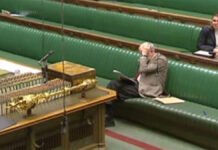Nationalisation
Jeremy Corbyn claimed a socialist manifesto might be restricted by the European Union’s rules on state aid if the UK tried to stay in the single market.
On the 24th of September, Jeremy Corbyn told the Andrew Marr Show the single market “has within it restrictions in state aid and state spending. That has pressures on it through the European Union to privatise rail for example and other services.”
The Remain camp would dismiss this and try to paint over the facts but it is clear to anyone who looks deeply enough that the EU is not in favour of Nationalisation or state aid.
This can clearly be seen in how the EU forced Électricité de France popularly known as EDF a state-owned EPIC, it became the main electricity generation and distribution company in France, enjoying a monopoly in electricity generation, although some small local distributors were retained by the nationalisation. This monopoly ended in 1999 when EDF was forced by a European Directive to open up 20% of its business to competitors.
Note the fact that EDF was forced to open up to competitors due to EDF’s monopoly. Nationalisation of utilities and rail in all senses of the word is a Monopoly and can be no other, it is on this basis that EU rules and regulations will not allow Labour’s manifesto to be implemented in full.
Using France once again Remainers point out that French water is nationalised this is far from true, France has a number of water companies that are owned by Towns or cities, they may be in public hands but are not state-owned in toll throughout France this equates to just 60% of Frances water suppliers.
Eau de Paris
Is often cited as state-owned yet, in reality, the state owns only 70% of the company.
February 1, 1987, City Hall forms a semi-public company (SEM) to ensure drinking water production. It is called SAGEP (Société anonyme de gestion des eaux de Paris) and the City of Paris owns a 70% stake in its capital. It would be renamed Eau de Paris on January 1, 2005.
November 24, 2008, The Council of Paris voted to return its water service to public management. A public industrial and commercial company (EPIC) is created. May 1, 2009
The new Eau de Paris EPIC replaces the former SEM for water production and transportation. It incorporates part of the CRECEP teams from the departmental laboratory in charge of monitoring water quality.
January 1, 2010, Eau de Paris became the sole municipal operator for the French capital’s public water service ensuring global business, from catchment to invoicing. July 1, 2011, Eau de Paris internalizes subscriber management which was formerly outsourced to the different distribution companies. This was the final step in the return to public management.
The note here is MANAGEMENT, not 100% State owned.
Fourth railway package
While the one thing that is true at this moment in time is the state-owned railways but the disappointing news there is that the EU has moved forward on the Fourth railway package.
The 4th Railway Package is a set of 6 legislative texts designed to complete the single market for Rail services (Single European Railway Area). Its overarching goal is to revitalise the rail sector and make it more competitive vis-à-vis other modes of transport. It comprises two ‘pillars’ which have been negotiated largely in parallel:
The market pillar will complete the process of gradual market opening started with the 1st railway package. It establishes the general right for railway undertakings established in one Member State to operate all types of passenger services everywhere in the EU, lays down rules aimed at improving impartiality in the governance of railway infrastructure and preventing discrimination and introduces the principle of mandatory tendering for public service contracts in rail. Competition in rail passenger service markets will encourage railway operators to become more responsive to customer needs, improve the quality of their services and their cost-effectiveness. The competitive tendering of public service contracts will enable savings of public money. The market pillar is expected to deliver more choice and better quality of rail services for European citizens, these being the overriding objectives.
Proposals under the 4th railway package have four main aims:
- Standards and approvals that work
The changes aim to cut the administrative costs for rail companies and make it easier for new operators to enter the market. The European Railway Agency (ERA) would become the single place of issue for vehicle authorisations and safety certificates for operators. - A structure that delivers
The proposed changes would strengthen the role of infrastructure managers – the people responsible for running tracks – ensuring they have complete operational and financial independence from train operators. Infrastructure managers would also control all areas at the heart of the rail network, such as infrastructure planning, timetabling, and daily operations and maintenance. - Opening domestic passenger markets
The 4th railway package includes the proposal to open up domestic passenger railways to new entrants and services from December 2019. Companies would be able either to offer competing services, such as a new train service on a particular route or to bid for public service rail contracts through tendering. The proposed changes would make competitive tendering mandatory for public service rail contracts in the EU. - Maintaining a skilled rail workforce
The proposals recognise the importance of attracting skilled and motivated staff to the rail sector. In particular, the changes would allow member states to better protect workers when public service contracts are transferred to new contractors.
The RMT union are very clear on the issue of privatisation of Rail throughout the EU and it will begin in 2019.
Yes Nationalisation within the EU is possible but only in part or failing service.
In other words, if there is no profit then the public can have it.
So what’s to stop the UK from the nationalisation of Rail and Utilities?
Article 106 is the main culprit it is one of the articles that form the foundation of the EU and prevents monopolies
“Article 106, the EU prohibits public monopolies exercising exclusive rights where this violates EU competition rules,”
This article alone would make anyone from the Left question Remains attempts at suggesting the EU does not prohibit nationalisation. If it is true that it does not prohibit nationalisation it certainly will and does prohibit state ownership of the Utility companies and Rail in full.
Support Independent Journalism Today
Our unwavering dedication is to provide you with unbiased news, diverse perspectives, and insightful opinions. We're on a mission to ensure that those in positions of power are held accountable for their actions, but we can't do it alone. Labour Heartlands is primarily funded by me, Paul Knaggs, and by the generous contributions of readers like you. Your donations keep us going and help us uphold the principles of independent journalism. Join us in our quest for truth, transparency, and accountability – donate today and be a part of our mission!
Like everyone else, we're facing challenges, and we need your help to stay online and continue providing crucial journalism. Every contribution, no matter how small, goes a long way in helping us thrive. By becoming one of our donors, you become a vital part of our mission to uncover the truth and uphold the values of democracy.
While we maintain our independence from political affiliations, we stand united against corruption, injustice, and the erosion of free speech, truth, and democracy. We believe in the power of accurate information in a democracy, and we consider facts non-negotiable.
Your support, no matter the amount, can make a significant impact. Together, we can make a difference and continue our journey toward a more informed and just society.
Thank you for supporting Labour Heartlands












